#1968 olympics
Explore tagged Tumblr posts
Text
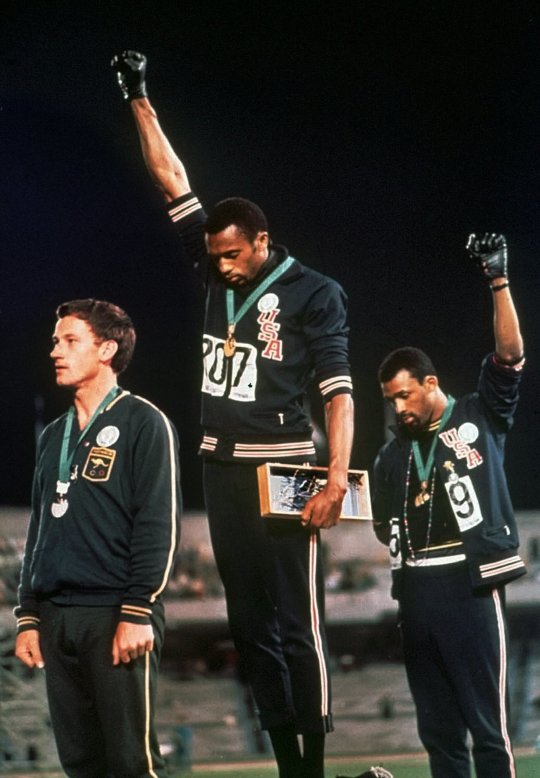
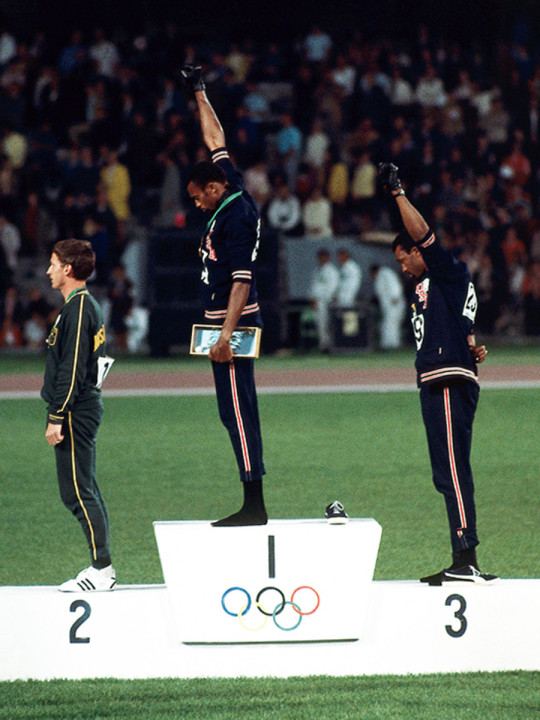
iconic 1968 Summer Olympics moment with Tommie Smith (1st), Peter Norman (2nd), and John Carlos (3rd)
#olympics#1968 olympics#black history month#athlete#john carlos#peter norman#olympic games#1968#track and field#black power#tommie smith#the olympics
194 notes
·
View notes
Text

I FINALLY FINISHED PANEL1 GAAA TYFBFA R VRRSCYFSTC
Someity is gifted a random letter from her classmate and fellow tech-savvy friend, Millie. I wonder what she has to say after German?…
#olympic mascots#someity#millie#sydney 2000#Sydney 2000 mascots#tokyo 2020 olympics#Olympic games#schuss#waldi#1968 Olympics#1972 munich olympics#comic#au comic#Olympic mascot school au comic#school au#somillie canon I’m actually Waldi guys#speaking of#Waldi and Amik are transfem and transmasc but I’ll show some shenanigans of them later#foolonthesubmarine
4 notes
·
View notes
Text
Věra Čáslavská


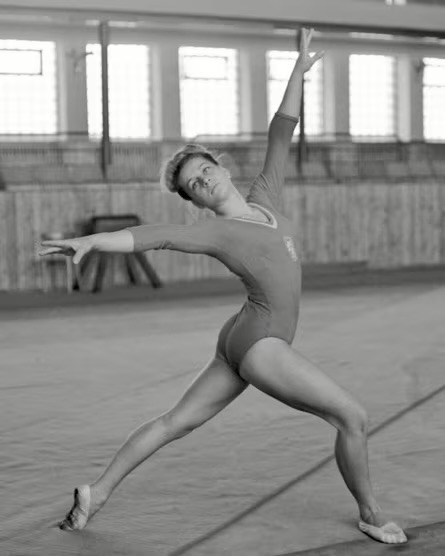

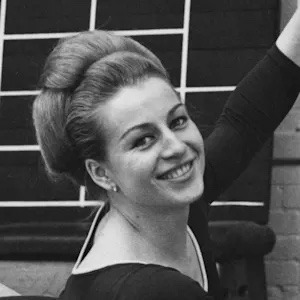

Čáslavská (May 3, 1942 - August 30, 2016) was a Czechoslovak artistic gymnast. She is the second-most awarded female gymnast in the Olympics, with a total of 11 medals.
Before the 1968 Mexico City Olympics, her training facility was lost due to the Soviet led invasion of Czechoslovakia. She was then forced to train alone, in the forest, using logs as beams and potato sacks as weights. Despite her setbacks, she went on to win medals in all six events.
While at the 1968 Mexico City Olympics Čáslavská publicly protested the 1968 Soviet Invasion of Czechoslovakia by silently looking down and away while the USSR’s anthem played.
She was revered by the Czech people and was awarded Czechoslovakia’s Sportsperson of The Year award in 1968. However, due to her protest, she became a persona non grata in the new Czechoslovak regime, and was forced to retire, also being denied the ability to travel and work.
21 years later, after the Velvet Revolution, Čáslavská’s status had improved and she became the President’s adviser on sports and social matters. Her story is that of resistance and resilience in times of hardship, she was a Czech icon whose protest should never be forgotten.

#Vera Čáslavská#vera caslavska#gymnastics#gymnastics history#gymnast#olympics#1968 olympics#czechia#czechoslovakia#czech history#czechoslovak#resistance#eastern europe#olympic history#Věra čáslavská
4 notes
·
View notes
Quote
"Man, I didn't do what you guys did." He said, "But I was there in heart and soul to support what you did. I feel it's only fair that you guys go on and have your statues built there, and I would like to have a blank spot there and have a commemorative plaque stating that I was in that spot. But anyone that comes thereafter from around the world and going to San Jose State that support the movement, what you guys had in '68, they could stand in my spot and take the picture."
The White Man in the Photo of the Black Power Salute at the 1968 Olympics
2 notes
·
View notes
Text
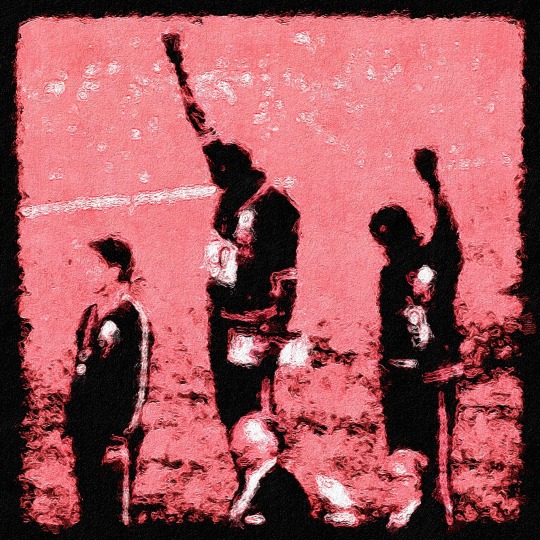
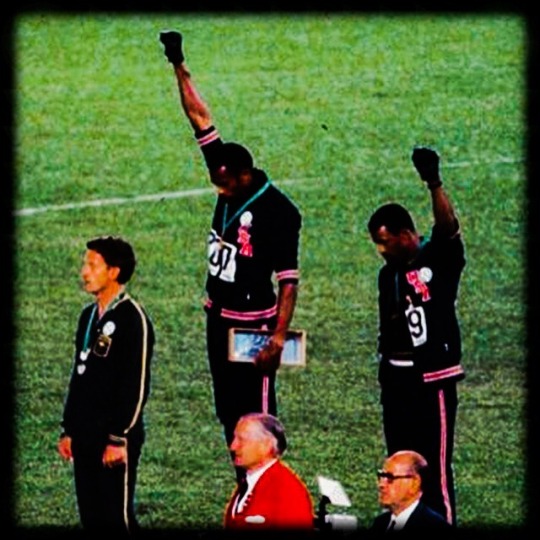
1 note
·
View note
Text


The 1968 Olympics Black Power salute occurred during the medal ceremony for the men's 200-meter race, when American athletes Tommie Smith and John Carlos raised their fists in a powerful protest against racial injustice. Standing shoeless with black socks to symbolize Black poverty, Smith and Carlos also wore black gloves, with Smith raising his right fist and Carlos his left. Australian silver medalist Peter Norman stood in solidarity by wearing a badge supporting human rights. The gesture, made during the U.S. national anthem, drew global attention but led to severe backlash, marking a defining moment in the intersection of sports and activism.
#black people#black#black history#black tumblr#blacktumblr#pan africanism#black conscious#africa#black power#black empowering#tommie smith#john carlos#1968 Olympics Black Power salute#peter norman#1960s#sport
151 notes
·
View notes
Text
80 notes
·
View notes
Text
Never forget these moments. Tommy Smith, John Carlos, Peter Norman.
Never forget that this was also a moment of solidarity. The reason the raised hands only had one glove was because they belonged to the silver medalist, Peter Norman. All three of the athletes wore Human Rights badges on their jackets. Norman didn't raise his fist because he did not want to steal the incredibly powerful moment from Tommie Smith and John Carlos.
Norman returned home to Australia as a pariah, suffering unofficial sanction and was ridiculed as the forgotten man of the Black Power salute. He was not selected for the 1972 Olympics and never ran in an Olympics again.

963 notes
·
View notes
Text

Mexican National Tourist Council, 1968
#Mexico#ad#1968#travel#Olympics#advertisement#vintage#1960s#Olympic games#advertising#60s fashions#destination
72 notes
·
View notes
Text

Audrey Hepburn and her good friend Doris Brynner at Chamrousse for the Winter Olympics near Grenoble on 5 February 1968
#audrey hepburn#old hollywood glamour#old hollywood#fashion#classic#vintage#photography#style#1968#1960s#doris brynner#winter olympics
112 notes
·
View notes
Text

Peggy Fleming in Geneva for the World Figure Skating Championships, 1968. Photographed by Jack Garofalo.
#love the photos of her in geneva on that olympic champ/america’s darling high#and those lamps ofc#peggy fleming#1968#1960s#jack garofalo#i’m full of typos tonight sorry i took multiple naps#lamps
232 notes
·
View notes
Text


winter night
#31 minutos fanart#31 minutes#31 minutos#grenoble 1968#olympic mascot#olympic mascots#mascotverse#schuss#cuddles' art
62 notes
·
View notes
Text

51 notes
·
View notes
Text

"Libertador Miguel Hidalgo" Olympic Village in Mexico City, Mexico
Mexican vintage postcard, mailed in 1968 to Paris
#vintage#1968#hidalgo#tarjeta#libertador#olympic#briefkaart#postcard#photography#postal#carte postale#sepia#mexico#ephemera#historic#mexico mexican#paris#ansichtskarte#olympic village#postkarte#mexico city#mexican#village#city#libertador miguel hidalgo#mailed#postkaart#miguel#photo
26 notes
·
View notes
Text
Saving Women's Sports also means learning about women athletes
ROSEDALE, Miss. —
Mildrette Netter, Mississippi's first woman Olympic medalist, was the catalyst for change in women's track in the state.
"I wanted to go and experience a better life," Netter said.
Netter grew up in Rosedale, Mississippi.
"Two things I was at a disadvantage for was being from Mississippi and being short," she said.
This was the reason given by the coach at Tennessee State when he declined to give her a scholarship in 1967.
"There were no women's track programs in the state of Mississippi at all," Netter said.
She thought her career was over until Alcorn State University head track coach Grant Dungee reached out to her.
"She was the only girl," Dungee said. "Some of the guys she could beat."
Netter competed in out-of-state meets, shocking the competition as the short girl from Mississippi exploded onto the scene and into the 1968 Olympic 4 by 100-meter team.
"It made me eager and hungry," Netter said.
Her personal struggle was set against the backdrop of the civil rights movement and the assassination of Dr. Martin Luther King Jr., just months before her Olympic debut.
Netter's husband, Alcorn teammate and Vietnam vet Willie, experienced the struggle firsthand.
"He had so much spirit, it put chills through you. That night that he was assassinated, we were at Alcorn college. Something happened there on base, they came on base, we got beat up on base on campus that night," Willie said.
"That was a very turmoil time in our country," Netter said.
Tommie Smith and John Carlos protested through their raised fist on the podium.
"Everyone protests in their own way," she added.
The lesser-known story of American social justice from the 1968 Olympics was Netter's effect on the state of Mississippi.
"They can see me, then hey, maybe they can be me," she said.
The Magnolia State was watching, and after seeing Netter help Team USA set a new world record in the 4 by 100 meters, it started to change.
"The next year, that's when they formed the team," Netter said.
Alcorn was one of the first, and other schools followed. No longer did Mississippi women have to go out of state to pursue their track and field dreams.
Netter wasn't the first woman to play sports in Mississippi, but she very well may have been the most important.
15 notes
·
View notes
Text


two of my favourite pictures of keith he's so cute in these
#i don't know who took these... it looks like olympic studios 1968 so maybe eric hayes#keith richards#🖇️
12 notes
·
View notes